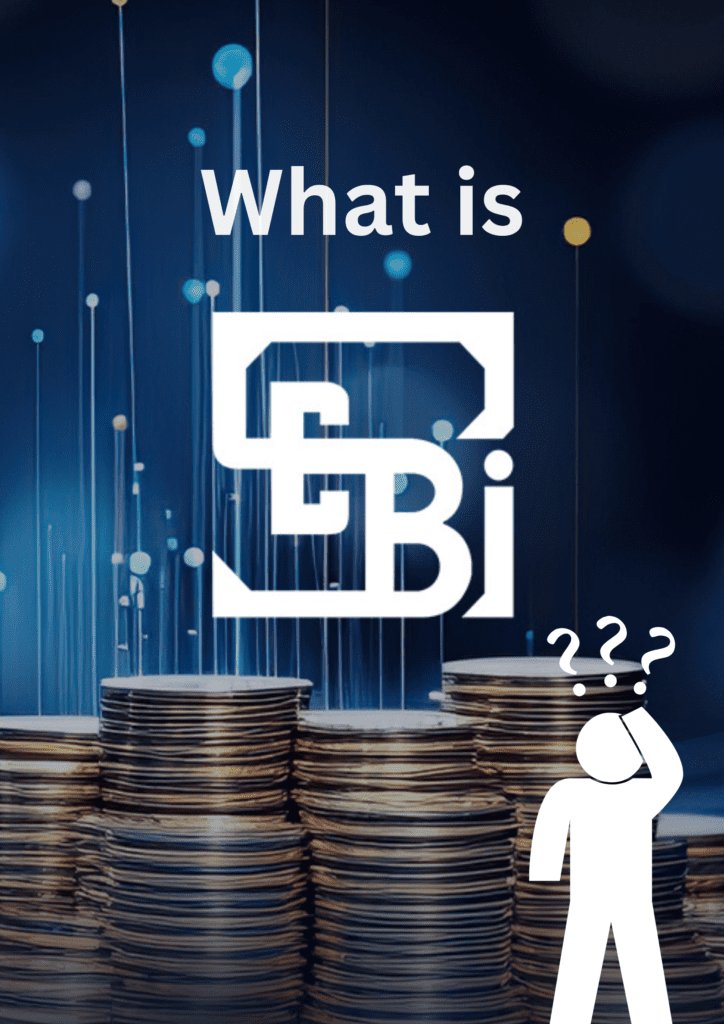Welcome to knowtostock.com,In this article we will discuss about different Role of SEBI.We will also learn about SEBI and its functions.
What is SEBI?
SEBI stands for Securities and Exchange Board of India is a statutory regulatory body established by Goverment or the Parliament of India to regulate the securities market of India.It was established in April 12,1988 and acquired statutory status on January 30,1992. SEBI plays an important role in protecting the interests of investors and promoting the healthy functioning of the securities market. It formulates policies and regulations, monitors market activities, and ensures fair practices among market participants.To visit official of SEBI CLICK HERE.

Role of SEBI
- SEBI’s responsibility is to ensure that the securities market in India functions in an orderly manner.
- Role of SEBI is to regulates the securities market to protect the interests of investors and ensure the integrity of the market.
- It formulates regulations and guidelines for various participants in the securities market, including stock exchanges, brokers, and other intermediaries.
- SEBI works to safeguard the interests of investors by promoting transparency, fairness, and accountability in the securities market.
- It ensures that investors receive accurate and timely information about securities and companies, enabling them to make informed investment decisions.
- SEBI regulates mutual funds and ensures that they operate in the best interests of investors.
- It formulates guidelines for the creation, management, and operation of mutual funds and monitors their compliance.
- SEBI undertakes educational initiatives to enhance investor awareness and financial literacy.
Functions of SEBI
SEBI performs severasl important functions to regulate and oversee the securities market in India and it is also almost similar to role of SEBI. Here are the key functions of SEBI:
- It formulates policies and regulations for various market participants, including stock exchanges, brokers, and other intermediaries.
- SEBI works to protect the interests of investors by ensuring that they receive accurate and timely information about securities and companies.
- It promotes transparency and fairness in the securities market to enhance investor confidence.
- SEBI takes measures to develop and promote the securities market in India.
- It introduces reforms and policies to improve market infrastructure, trading systems, and settlement processes.
- It sets eligibility criteria and standards for the conduct of these intermediaries to ensure compliance with regulations.
- SEBI regulates the functioning of mutual funds to protect the interests of investors.
- SEBI undertakes educational initiatives to enhance investor awareness and financial literacy.
- It can impose penalties, initiate legal proceedings, and suspend or cancel the registration of market participants for non-compliance.
- SEBI engages in policy advocacy to propose and implement regulatory changes that contribute to the overall development and stability of the securities market.
Power of SEBI
- SEBI is the primary regulatory authority for the securities market in India.
- SEBI has the power to formulate regulations, guidelines, and policies to govern the conduct of market participants. This includes rules related to listing requirements, disclosure norms, and trading practices.
- SEBI is responsible for the registration and oversight of market intermediaries, such as stockbrokers, sub-brokers, depository participants, and portfolio managers. It sets eligibility criteria and standards for their operations.
- SEBI has investigative powers to inquire into potential violations of securities laws. It can conduct inspections, audits, and investigations to ensure compliance with regulations.
- The regulator has the authority to take enforcement actions, such as imposing fines, penalties, and initiating legal proceedings against entities found to be in violation of securities laws.
- SEBI conducts market surveillance to detect and prevent market manipulation, insider trading, and other fraudulent activities. It uses advanced technology and data analysis to monitor trading activities in real-time.
- SEBI has the authority to grant approval for the establishment and recognition of stock exchanges. It sets the criteria that exchanges must meet to ensure fair and transparent operations.
- SEBI regulates the functioning of mutual funds and has the power to approve their schemes. It sets guidelines for the creation, management, and operation of mutual funds to protect the interests of investors.
- SEBI administers the Takeover Code, which regulates the acquisition of shares and control of companies. It establishes rules for open offers and ensures that the interests of minority shareholders are protected during takeovers.
- SEBI has the authority to regulate and prevent insider trading. It sets guidelines for the prohibition of insider trading and establishes mechanisms for monitoring and reporting such activities.
Need of SEBI
- To provide protection to the investors
- To ensure proper return from stock exchange.
- To Prevent Fraudulent Practices by employing real-time surveillance, enforcing strict regulations against insider trading, and imposing penalties on violators. Transparent disclosures, a code of conduct, and investor education further contribute to a secure market environment, ensuring integrity and safeguarding investors from fraud.

- The list of stock brokers are registered with SEBI.For example: Upstox,Angel one,Zerodha,5paisa etc.
Some marvelous achievements of SEBI
Few months ago, An influencer Mohammad Nasirudin Ansari was fined 17.2 crore by SEBI.
Investigation into an influencer, recently penalised heavily by Sebi for running an illegal advisory, has opened a can of worms!
Mohammad Nasiruddin (Nasir) Ansari,whose youtube channel name was Baap of Chart, seems to have also been running an unregistered fund management service called Srpika Financial Services, whose clients are now after him.
Nasir was asked by the Securities and Exchange Board of India to transfer out “illegal gains” of over Rs 17 crore from running an unregistered advisory service.Nasir used to be the Director of Srpika Financial Services, which allegedly took lakhs of rupees from people, promising sizable returns. This was before 2021; the market regulator’s examination period was between January 1, 2021, and July 7, 2023.
If you are beginner in stock market and want to learn about stock market from starting then CLICK HERE.



Good content veer ji